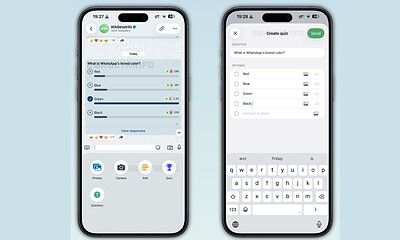Social
Meta found guilty of snooping on period app users’ data
Meta called the claims “false” and said it is exploring legal options to challenge the verdict.

Just a heads up, if you buy something through our links, we may get a small share of the sale. It’s one of the ways we keep the lights on here. Click here for more.
A California jury has ruled that Meta violated state privacy laws by secretly collecting sensitive health data from users of the popular Flo period tracking app without their consent.
This class-action lawsuit was brought by Flo users who say their personal menstrual information, like period dates and fertility goals, was used for targeted advertising.
The case, originally filed in 2021, accused several tech companies, including Meta, Google, AppsFlyer, and Flurry, of violating California’s Invasion of Privacy Act.
While Google and Flo settled the case earlier this year, the jury found Meta guilty of improperly accessing and using users’ private health data.
According to the plaintiffs, millions of Flo users were affected. Their lawyers called the verdict a major win for digital privacy, especially in the context of health-related data. (Via: TechCrunch)
“Companies like Meta that profit from people’s most intimate information must be held accountable,” said lead attorneys Michael P. Canty and Carol C. Villegas, who emphasized that this outcome reaffirms the fundamental right to privacy in the digital age.
Meta, however, strongly disagreed with the decision.
In a statement, a company spokesperson said Meta had no interest in collecting health data and that its developer policies strictly prohibit apps from sending any sensitive personal information.
Meta called the claims “false” and said it is exploring legal options to challenge the verdict.
The case highlights the growing tension between user privacy and the data-driven business models of large tech companies.
Apps like Flo collect deeply personal information, and users often don’t realize how that data can be shared or sold behind the scenes.
Interestingly, Flo, which was valued at over $1 billion after raising $200 million in funding last year, had already settled its part of the lawsuit, likely hoping to move past the legal trouble before further damaging its reputation.
This ruling may set a powerful precedent for how digital health data must be handled moving forward, and put companies like Meta under even greater scrutiny.
Should tech giants like Meta face stricter penalties for secretly collecting sensitive health data from apps? Does this verdict signal a turning point for how companies will handle users’ most private information going forward? Tell us below in the comments, or reach us via our Twitter or Facebook.





























